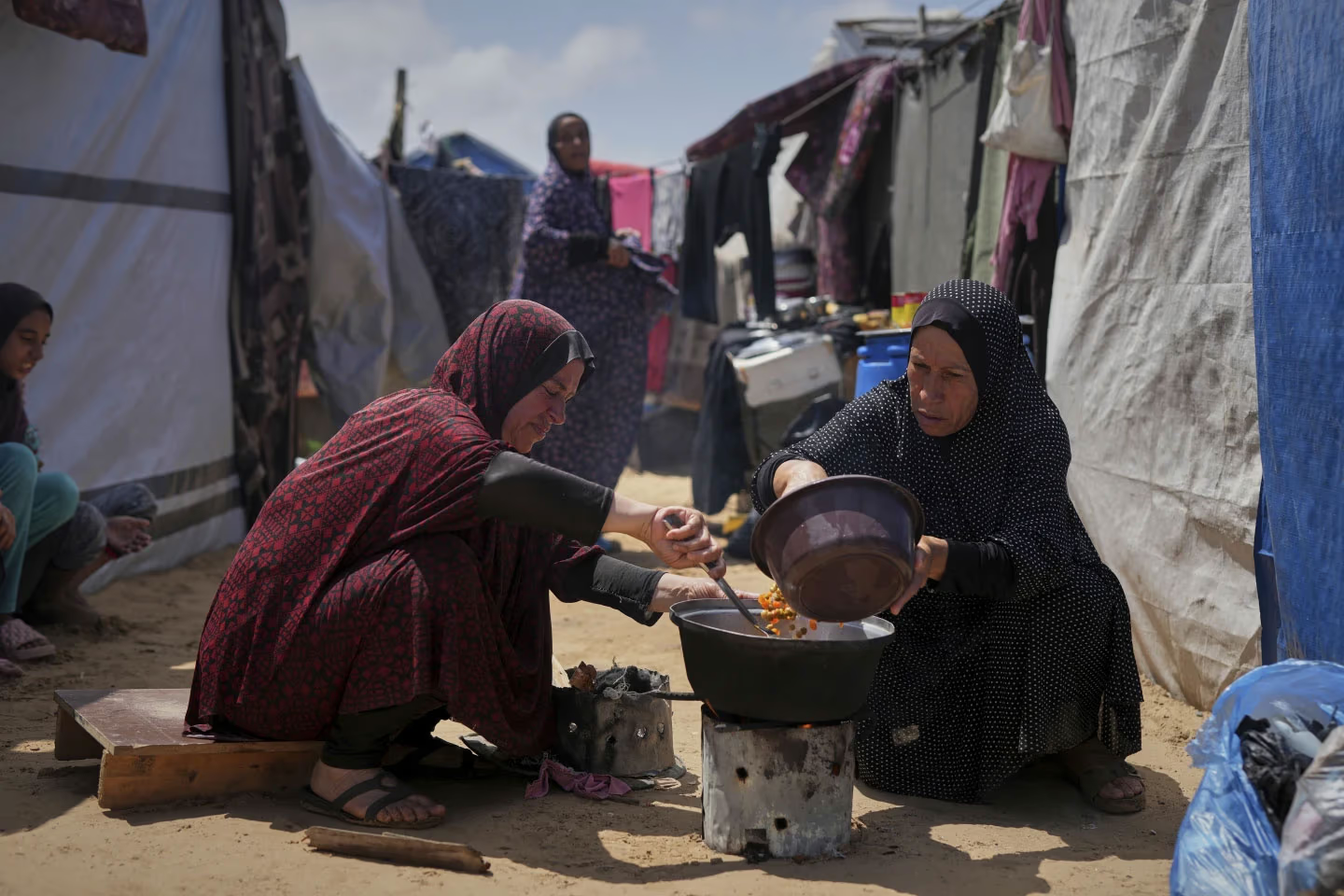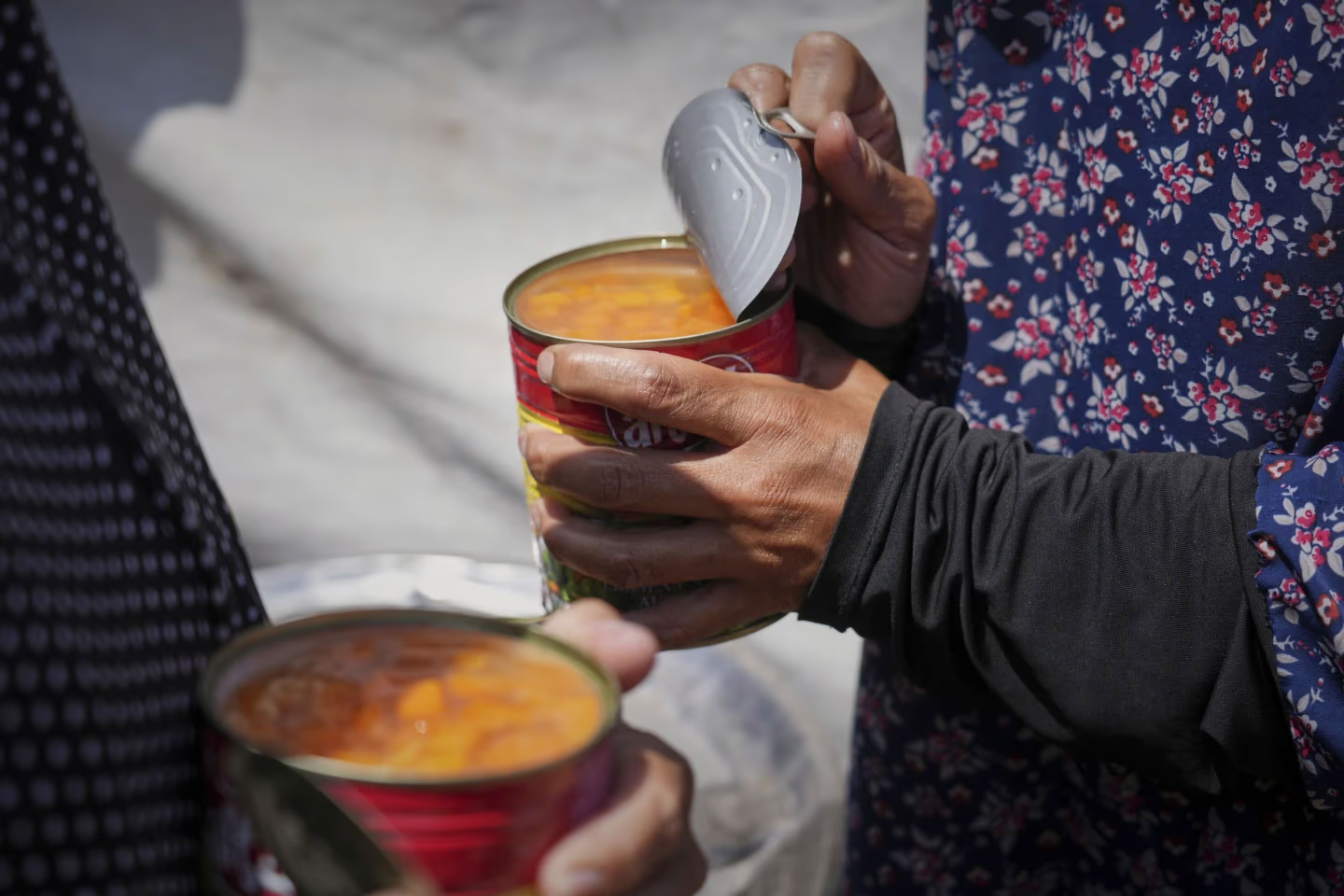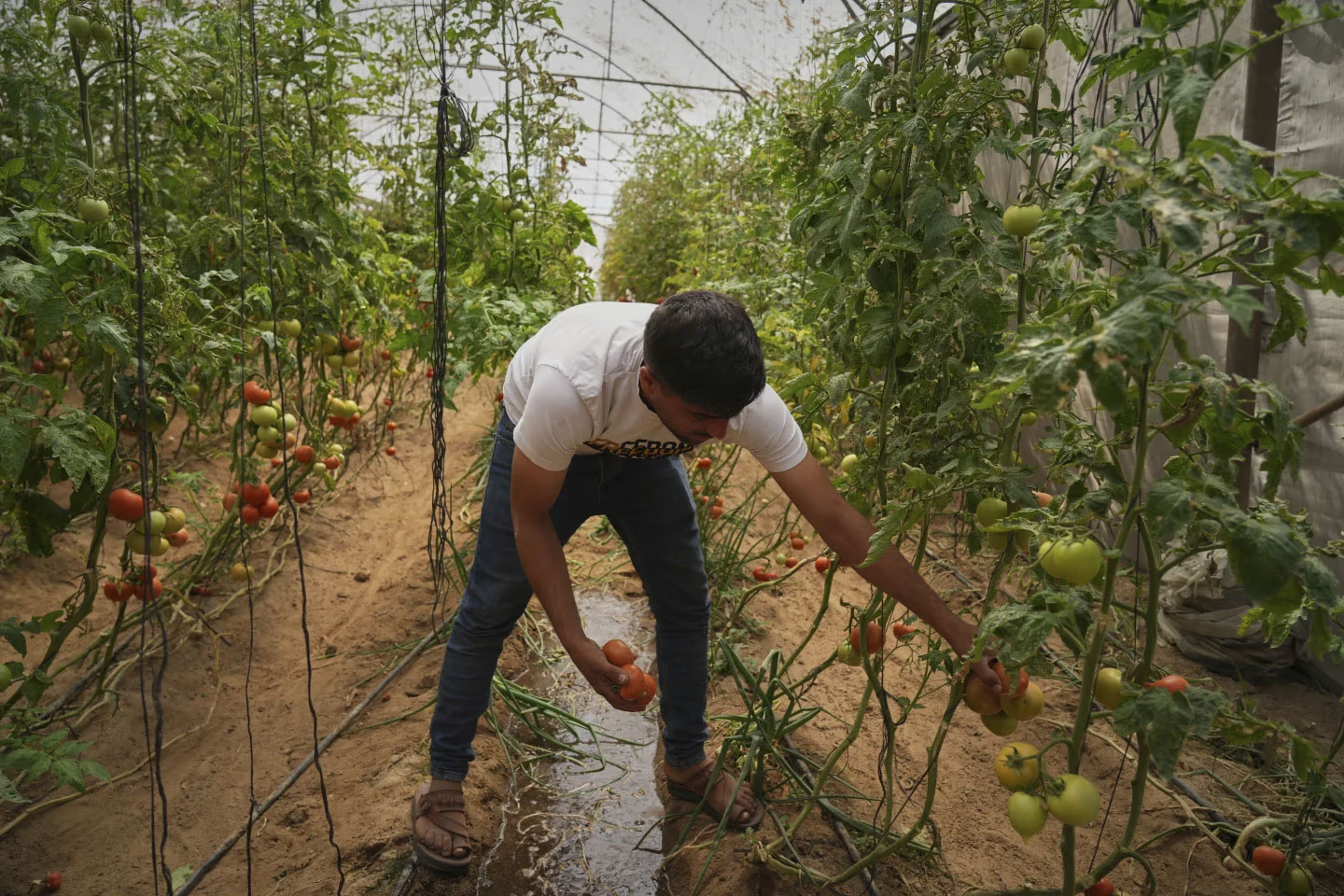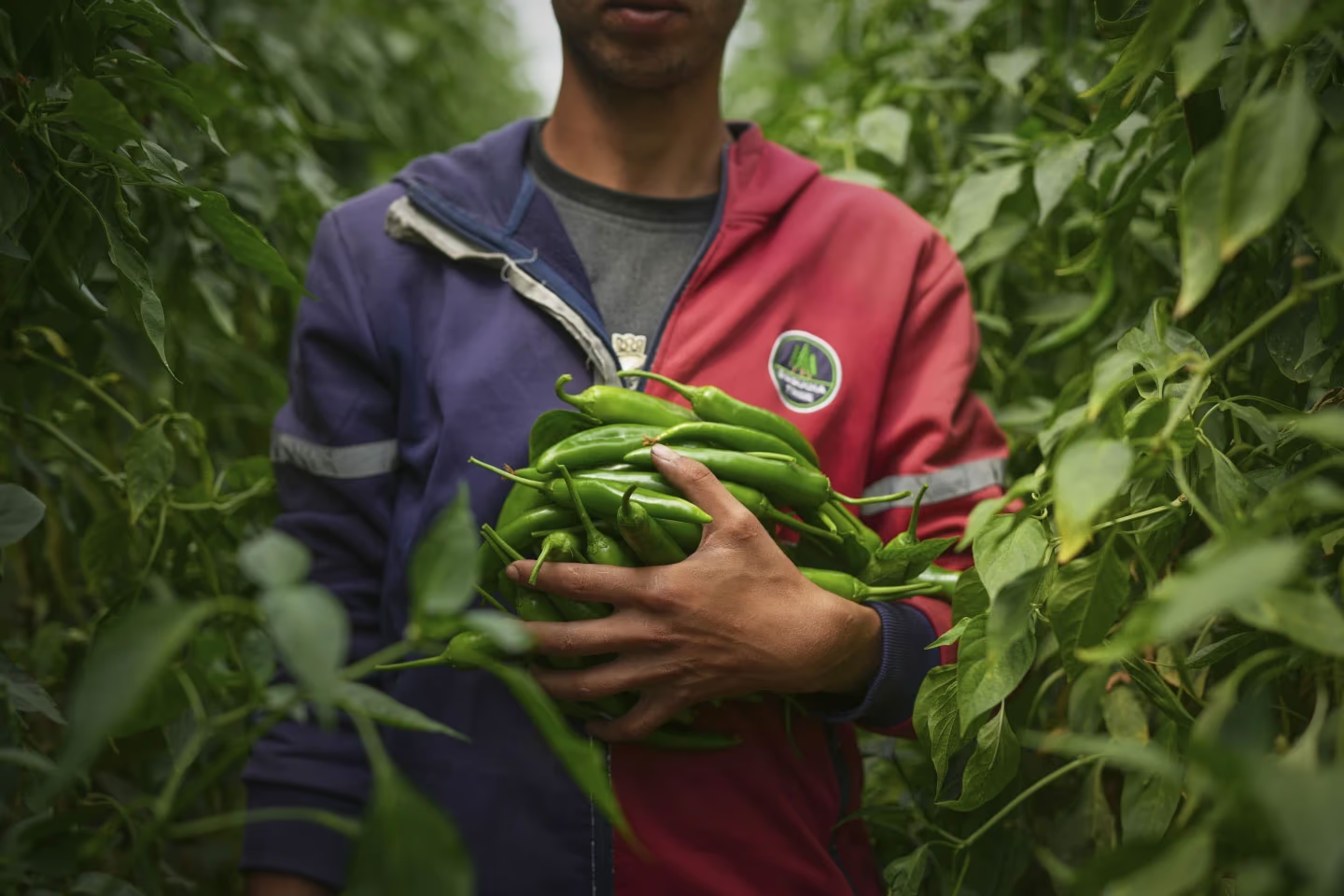Since early March 2025, the Gaza Strip has been under a strict blockade imposed by Israel following the collapse of a ceasefire. Officially aimed at pressuring Hamas to release hostages, the blockade has severely impacted the entire enclave’s population. Food, fuel, and medical supplies have been cut off, agricultural lands devastated, markets emptied, and charity kitchens are running out of supplies. Amid ongoing hostilities, the UN and human rights organizations warn of a rapid rise in hunger and mass malnutrition, particularly among children.
Blockade and a Meal of Canned Goods: Gaza’s New Reality
For almost two months, no food, fuel, or medical supplies have entered the Gaza Strip—Israel has cut off deliveries. Aid organizations warn that stocks are nearly depleted, markets are emptying, and families are desperately trying to feed their children.
In a massive tent camp on the outskirts of Khan Younis, Maryam al-Najjar and her mother-in-law cooked the only meal they could over an open fire: four cans of peas and carrots, bouillon cubes, and spices. This became the entire Friday meal for the eleven members of their family, including six children.

Mira Abu Shaar, 5, and her older sister Ragad, 15, stand with cooking pots outside their family’s tent in the Muwasi area on the outskirts of Khan Younis, waiting for food distribution. Southern Gaza Strip, April 24, 2025.
According to Mariam, Friday is a special day in Palestinian tradition—usually a time for the whole family to gather around a hearty table with meat and stuffed vegetables. "Now we eat peas with rice," she says. "Before the war, we never ate canned peas. Only in this war, which has destroyed our lives."
Today, nearly all of Gaza's 2.3 million residents survive on canned vegetables, rice, pasta, and lentils. Meat, dairy products, and fruit have disappeared. Bread and eggs have become luxuries. The few vegetables still available are so expensive that most people cannot afford them.
"We cannot get anything that would provide us with protein or essential nutrients," says Mariam al-Najjar.
Hidden War: Hunger as a Weapon
Israel imposed a full blockade on Gaza on March 2 and resumed military operations on March 18, breaking the ceasefire. The official explanation was to pressure Hamas into releasing hostages. Human rights organizations call the blockade a "deliberate starvation tactic," which could amount to a war crime.
"One by one, products disappeared from the market," Mariam recounts.

Empty shelves at a supermarket in Khan Younis, southern Gaza Strip. April 24, 2025.
When meat disappeared, the family switched to canned sardines—until those also ran out. UN-supplied milk stopped arriving several weeks ago. Tomatoes, once available at least once a week, have now become an unattainable luxury.
Now they survive on beans, peas, lentils, and pasta distributed by charity kitchens. Occasionally, they manage to get bread or sugar—then the children are given tea with bread.
"I'm afraid my grandchildren will die of hunger," says 61-year-old Sumaya al-Najjar. Both she and her husband have been diagnosed with cancer, but due to the shortage of medicines, Sumaya has stopped treatment; her husband continues to receive some assistance at the hospital.
"Maybe we'll start eating sand," adds Mariam.
Hidden Wounds: Children on the Brink of Starvation
Doctors are warning that the lack of protein and vitamins is causing irreversible harm to children. According to Ayman Abu Teir, head of therapeutic nutrition at Nasser Hospital in Khan Younis, cases of severe malnutrition among children have "increased significantly." Nutritional formulas have run out. UN data recorded 3,700 cases of acute malnutrition in March—an 80% increase compared to the previous month.
"For normal development, children need meat, fish, eggs, dairy products, fruits, and vegetables," says Abu Teir. "None of that is available in Gaza."

Sumaya al-Najjar, 60, and Etemad al-Maghari, 52, cook peas over an open fire next to their tents in Al-Mawasi, on the outskirts of Khan Younis, southern Gaza Strip. April 25, 2025.

Maryam al-Najjar, 38, opens a can of peas to prepare a meal in her family's tent in Al-Mawasi, on the outskirts of Khan Younis, southern Gaza Strip. April 25, 2025.
He offers a simple calculation: a one-year-old child weighing 10 kilograms needs around 700 kilocalories per day. Meanwhile, the Najjar family's entire Friday meal—four cans of peas and carrots—contained about 1,000 kilocalories for eleven people.
Israeli authorities claim that sufficient supplies remained in Gaza from the temporary truce and accuse Hamas of seizing part of the aid shipments. Humanitarian organizations refute this, stating that cargo is strictly monitored by the UN and that no widespread seizures have been recorded.
The Last Markets, the Last Farms
At a recent market in Khan Younis, almost all the stalls were empty. The remaining vendors were selling tiny amounts of cucumbers, eggplants, and onions. Finding pasta on store shelves was rare. Cans of beans and peas had almost disappeared.
Prices have skyrocketed: a kilogram of tomatoes now costs 50 shekels—about 14 dollars—compared to less than a dollar before the war.
"I dream of a tomato," says Khalil al-Fakawi, who feeds nine people. "The children ask for meat, chicken, cookies. Forget about meat. There is lentils. Wonderful. Thank you very much. But what happens when the lentils run out?"
Fruits and vegetables only come from the few surviving farms. Most agricultural land has been destroyed or turned into closed-off zones where approaching is deadly dangerous.

A farmer harvests tomatoes in a greenhouse in Khan Younis, in the southern Gaza Strip. April 25, 2025.

Green peppers grown in a greenhouse in Khan Younis, in the southern Gaza Strip. April 25, 2025.
Even the surviving farms are barely operating. Farmer Mahmoud Al-Shaer says his greenhouses now yield only 150 kilograms of tomatoes per week, compared to 600 before. "In two weeks or a month, you won't find anything at all," he says.
Meanwhile, in Khan Younis, children with empty pots line up at the Rafa kitchen for a serving of lentils. Charity kitchens are the last barrier before famine, but they too are preparing to shut down: the UN World Food Programme has reported that supplies are running out.
"The people who depend on us will be on the brink of starvation if the kitchen closes," warns Hani Abu Qasim from the Rafa kitchen.
Might Over Right

Israel Intensifies Strikes on Gaza
At Least 74 People Were Killed in 24 Hours, Including in Attacks on Aid Distribution Points and an Airstrike on a Café

Israeli Strike on Gaza School Kills 33—Army Says Militants Were Hiding in the Building

Israel Expands Its Offensive and Partially Lifts the Blockade
Gaza Residents Remain Under Fire Without Shelter or Food

Israel Keeps Gaza Under Total Blockade, Cutting Two Million People Off From Food, Water, and Medicine
This Is Not a Humanitarian Crisis—It’s a Deliberate Siege

Divide and Control
Israel Has Entered a New Phase of the War in Gaza—with Large-Scale Displacement and Direct Control Over Humanitarian Aid

